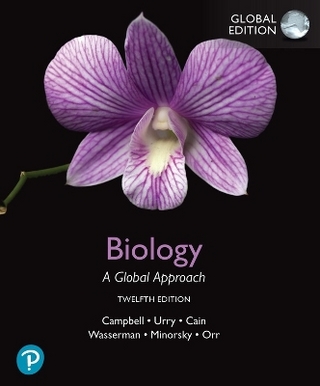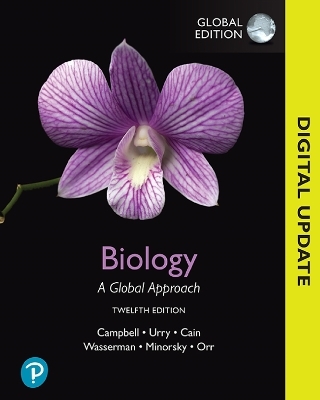
Proteomics for Biological Discovery, Second Edition
Seiten
2019
Wiley-Blackwell (Hersteller)
978-1-119-08166-1 (ISBN)
Wiley-Blackwell (Hersteller)
978-1-119-08166-1 (ISBN)
- Keine Verlagsinformationen verfügbar
- Artikel merken
An update to the popular guide to proteomics technology applications in biomedical research
Building on the strength of the original edition, this book presents the state of the art in the field of proteomics and offers students and scientists new tools and techniques to advance their own research. Written by leading experts in the field, it provides readers with an understanding of new and emerging directions for proteomics research and applications.
Proteomics for Biological Discovery begins by discussing the emergence of proteomics technologies and summarizing the potential insights to be gained from proteome-level research. The tools of proteomics, from conventional to novel techniques, are thoroughly covered, from underlying concepts to limitations and future directions. Later chapters provide an overview of the current developments in post-translational modification studies, structural proteomics, biochemical proteomics, applied proteomics, and bioinformatics relevant to proteomics. Chapters cover: Quantitative Proteomics for Differential Protein Expression Profiling; Protein Microarrays; Protein Biomarker Discovery; Biomarker Discovery using Mass Spectrometry Imaging; Protein-Protein Interactions; Mass Spectrometry Of Intact Protein Complexes; Crosslinking Applications in Structural Proteomics; Functional Proteomics; High Resolution Interrogation of Biological Systems via Mass Cytometry; Characterization of Drug-Protein Interactions by Chemoproteomics; Phosphorylation; Large-Scale Phosphoproteomics; and Probing Glycoforms of Individual Proteins Using Antibody-Lectin Sandwich Arrays.
Presents a comprehensive and coherent review of the major issues in proteomic technology development, bioinformatics, strategic approaches, and applications
Chapters offer a rigorous overview with summary of limitations, emerging approaches, questions, and realistic future industry and basic science applications
Features new coverage of mass spectrometry for high throughput proteomic measurements, and novel quantitation strategies such as spectral counting and stable isotope labeling
Discusses higher level integrative aspects, including technical challenges and applications for drug discovery
Offers new chapters on biomarker discovery, global phosphorylation analysis, proteomic profiling using antibodies, and single cell mass spectrometry
Proteomics for Biological Discovery is an excellent advanced resource for graduate students, postdoctoral fellows, and scientists across all the major fields of biomedical science.
Building on the strength of the original edition, this book presents the state of the art in the field of proteomics and offers students and scientists new tools and techniques to advance their own research. Written by leading experts in the field, it provides readers with an understanding of new and emerging directions for proteomics research and applications.
Proteomics for Biological Discovery begins by discussing the emergence of proteomics technologies and summarizing the potential insights to be gained from proteome-level research. The tools of proteomics, from conventional to novel techniques, are thoroughly covered, from underlying concepts to limitations and future directions. Later chapters provide an overview of the current developments in post-translational modification studies, structural proteomics, biochemical proteomics, applied proteomics, and bioinformatics relevant to proteomics. Chapters cover: Quantitative Proteomics for Differential Protein Expression Profiling; Protein Microarrays; Protein Biomarker Discovery; Biomarker Discovery using Mass Spectrometry Imaging; Protein-Protein Interactions; Mass Spectrometry Of Intact Protein Complexes; Crosslinking Applications in Structural Proteomics; Functional Proteomics; High Resolution Interrogation of Biological Systems via Mass Cytometry; Characterization of Drug-Protein Interactions by Chemoproteomics; Phosphorylation; Large-Scale Phosphoproteomics; and Probing Glycoforms of Individual Proteins Using Antibody-Lectin Sandwich Arrays.
Presents a comprehensive and coherent review of the major issues in proteomic technology development, bioinformatics, strategic approaches, and applications
Chapters offer a rigorous overview with summary of limitations, emerging approaches, questions, and realistic future industry and basic science applications
Features new coverage of mass spectrometry for high throughput proteomic measurements, and novel quantitation strategies such as spectral counting and stable isotope labeling
Discusses higher level integrative aspects, including technical challenges and applications for drug discovery
Offers new chapters on biomarker discovery, global phosphorylation analysis, proteomic profiling using antibodies, and single cell mass spectrometry
Proteomics for Biological Discovery is an excellent advanced resource for graduate students, postdoctoral fellows, and scientists across all the major fields of biomedical science.
Timothy D. Veenstra, PhD, is the Director of the Laboratory of Proteomics and Analytical Technologies, Department of Applied Science, Maranatha Baptist University, Watertown, Wisconsin, USA. John R. Yates III, PhD, is in the Department of Molecular Medicine and Neurobiology, The Scripps Research Institute, La Jolla, California, USA.
| Erscheint lt. Verlag | 11.5.2019 |
|---|---|
| Verlagsort | Hoboken |
| Sprache | englisch |
| Maße | 150 x 250 mm |
| Gewicht | 666 g |
| Themenwelt | Naturwissenschaften ► Biologie |
| ISBN-10 | 1-119-08166-1 / 1119081661 |
| ISBN-13 | 978-1-119-08166-1 / 9781119081661 |
| Zustand | Neuware |
| Haben Sie eine Frage zum Produkt? |
Mehr entdecken
aus dem Bereich
aus dem Bereich
Online Resource (2024)
Pearson Education Limited (Hersteller)
39,95 €
Online Resource (2024)
Pearson Education Limited (Hersteller)
63,75 €

